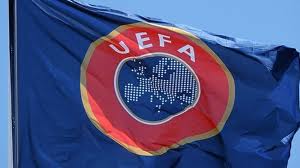By Andrew Warshaw
February 16 – One of the longest-serving figures among European football’s old guard elite is exploiting an historic loophole in UEFA’s age restrictions to try and retain a place at the organisation’s top table.
UEFA vice-president and finance chief Marios Lefkaritis is standing for re-election to the executive committee at the age of 70, calling into question one of the guiding principles of Aleksander Ceferin’s progressive governance programme.
Last week, as part of his ongoing campaign to reform and modernise UEFA since taking over the presidency from Michel Platini, Ceferin announced a raft of long overdue changes to the statutes under which UEFA presidents and executive committee members will in future be limited to a maximum of three terms and a total of 12 years in the job.
He also confirmed that he wanted to maintain UEFA’s age limit of 70 for senior officials, enshrined in the statutes which state that “a person aged 70 or more shall not be eligible for election or re-election.”
Yet Insideworldfootball has discovered an anomaly in the regulations, one which theoretically could allow Lefkaritis, if elected for three more terms, to stay on the exco until the age of 82 – even older than the much-maligned Sepp Blatter in the final days of his FIFA presidency.
Although the 70 age limit covers most of UEFA’s internal bodies, members of the exco, the organisation’s inner sanctum and chief decision-making body, are exempt under a further statute which states that the ceiling “does not apply to President of UEFA, the 13 members of the Executive Committee and the Committee members in office on 11th October 2001.”
Since he joined the exco five years before that date, in 1996, Lefkaritis, who was a close ally of Platini, has been able to put his name forward for re-election as one of 13 candidates battling for eight places when the vote takes place in Helsinki on April 5.
Whilst it is important to stress that no rules have been broken – indeed Lefkaritis is a current member of the Fifa Council having previously been on the FIFA exco – eyebrows have been raised at UEFA’s 70 age restriction not applying for exco members given UEFA’s robust plans to overhaul the organisation’s governance structure and the fact that Lefkaritis has already been a member for 21 years.
Two years ago, another European veteran, Turkey’s Senes Erzik, took the decision independently to step down after 25 years on the UEFA exco, first as a member and then as vice-president.
“Most people believe that any UEFA appointee should retire at 70,” one of Lefkaritis’ rival candidates at April’s exco vote told Insideworldfootball. “The bit about the exco being exempt is hidden in the small print. But having approved the 13 candidates, I imagine presumably UEFA have discussed all this.”
It is also being suggested that Lefkaritis, who is now honorary president of the Cyprus FA after a decade of running his federation, does not meet the eligibility criteria laid out by Ceferin who clarified last week that exco members must in future hold one of four specific positions in their national association: president, vice-president, general secretary or CEO.
Lefkaritis’ case is all the more pertinent given the FIFA corruption scandal and the Swiss criminal investigation into the 2018 and 2022 World Cup bid process. Although he has not been found guilty of any wrongdoing, the Cypriot was among those who voted in the election that handed hosting rights to Russia and Qatar, respectively, and is widely reported to have been one of the individuals the Swiss attorney general’s office was keen to question as part of their ongoing probe.
Lefkaritis was also the subject of an investigation by the Sunday Times newspaper which alleged that his family was paid 32m Euros for a strip of land by the Qatar Investment Authority a year after the 2010 vote. He responded by vehemently denying his World Cup vote was in any way influenced and has long insisted that transaction was properly and legally documented.
But he has not been able to escape scrutiny during his long career in European and global football administration. In another episode, a whistleblower from Lefkaritis’ native Cyprus alleged several years ago that the Euro 2012 bidding contest (ultimately won by Poland and Ukraine) had been rigged. UEFA launched a defamation action in Switzerland against the whistleblower, who withdrew his claims several weeks later.
There was no evidence to link Lefkaritis with the incident but at one point, on his official FIFA biography page, Lefkaritis listed “recent allegations for corruption” as his response to what was his biggest disappointment in football.
Contact the writer of this story at moc.l1713959765labto1713959765ofdlr1713959765owedi1713959765sni@w1713959765ahsra1713959765w.wer1713959765dna1713959765

